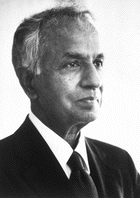A Quote by Brian Greene
Black holes provide theoreticians with an important theoretical laboratory to test ideas. Conditions within a black hole are so extreme, that by analyzing aspects of black holes we see space and time in an exotic environment, one that has shed important, and sometimes perplexing, new light on their fundamental nature.
Related Quotes
Data suggest that central black holes might play an important role in adjusting how many stars form in the galaxies they inhabit. For one thing, the energy produced when matter falls into the black hole may heat up the surrounding gas at the center of the galaxy, thus preventing cooling and halting star formation.
I like science fiction and physics, things like that. Planets being sucked into black holes, and the various vortexes that create possibility, and what happens on the other side of the black hole. To me it's the microcosmic study of the macrocosmic universe in man, and that's why I'm attracted to it.




























